| Country | Grants | Loans |
|---|---|---|
Austria 2013/14 - grants and loans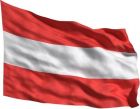 |
The federal student grants can systematically be divided into two sections: direct study financing received in cash,
and indirect study financing which the student may receive by a transfer payment to the students’ parents, or
through non-cash benefits.
Direct student support is paid out in monthly instalments up to EUR 8 952 per year. The amount is assessed on the basis of income and number of family members of the student, his/her parents and his/her spouse. The grants need not be paid back except when proof of academic achievement is missing after the first two semesters. | No student loans. |
Belgium - flemish 2013/14 - grants and loans | Student grants are allocated on the basis of economic need and academic merit. Eligibility is determined by the income of parents and/or the student and academic achievement in the past academic year. Amounts typically range from EUR 247.84 to EUR 3 835.53. However, a student is entitled to an extraordinary grant of up to EUR 5 164.02 on the basis of extremely low income and a lack of support from family members. | No loans. |
Belgium - french 2013/14 - grants and loans | Public grants in academic year 2012/13 are available for low income students under 35. Students must apply for this financial benefit each year. The amount granted is determined by household income and ranges from EUR 393.67 to 4673.17 per year. | Loans are available for families with at least three dependent children. Very few (0.01 %) take out a loan (2011/12). |
Belgium - german 2013/14 - grants and loans | Student grants are need-based. Parental income determines eligibility. They are provided through the national social security system for students who return to higher education. Annual grant amounts are between EUR 362 and 2 469. | The possibility exists to take out loans of EUR 1 000 for the first cycle and EUR 1 500 for the second cycle. Interest is between 0 and 3 %, depending on the income of the student, and the loan needs to be repaid at the latest three years after graduation. The Management Committee of student loans can decide about an additional loan of EUR 1 000 on a case-by-case basis. |
Bulgaria 2013/14 - grants and loans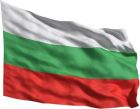 | Grants/scholarships are available to full-time students. They are distributed by higher education institutions, taking into account need-based and merit-based criteria. Grant amounts range from BGN 50 to 120/month. | Full-time students who are less than 35 years old can apply for state guaranteed loans. |
Croatia 2013/14 - grants and loans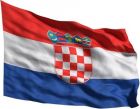 |
At national level, student grants are provided by two public sources: Ministry of Science, Education and Sports as well as National Foundation for support of pupils' and students' standard. Both institutions award grants according to a range of criteria which include both need- and merit-based elements. The grants range from HRK 500 to 1 000 per month and are available for 12 months each year till the graduation (i.e. total of 6 000-12 000 per year).
Further grants for students are provided by a number of regional and local governments. Part-time students are not eligible to apply for state-funded grants. | There are no loans. |
Cyprus 2013/14 - grants and loans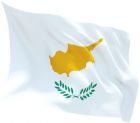 | All Cypriot students receive an annual educational grant (basic grant) by the Ministry of Finance. According to new
legislation which came into force in 2012, the educational grant is given based on family income criteria. The
minimum educational grant is EUR 850 and the maximum is EUR 2 565 per year.
Approximately 10 % of Cypriot students receive targeted need-based grants to cover living, books, rental and computer expenses based on their socioeconomic status. The minimum targeted grant is EUR 500 and the maximum is EUR 3 692 per year. About 2 % of students receive merit-based scholarships. The criteria for scholarships are academic excellence and socioeconomic status. Students may receive up to EUR 2 500-3 500 per year for an undergraduate programme (1st cycle), EUR 2 000 per year for a master's programme (2nd cycle). | Study loans are available only for owners of property in the northern Cyprus. |
Czech Republic 2013/14 - grants and loans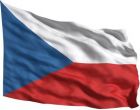 |
Scholarships can be granted on the basis of excellence in studies, for research, artistic or other activities. Scholarships are granted to students from regions other than the seat of the higher education institution as an accommodation scholarship (CZK 5 400/year). Social scholarships are available for students in a difficult economic situation (CZK 16 200/year). | No publicly subsidised loans are provided. |
Denmark 2013/14 - grants and loans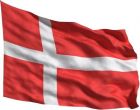 | State grants are available to all students. The maximum amount is DDK 5 753 per month for 12 months each year for students living independently. Extra grants are available for students who become parents and for single parents. Additional grants of DDK 8 180 per month are available for students with a disability. The amounts are for the year 2013. | State loans of DDK 2 943 per month are available to all students. During the period of study, a 4 % annual interest rate applies. Students must start paying back no later than one year after the end of the year in which they graduate. The loan must be repaid within 15 years. About half of all students make use of state loans (2).The amounts are for the year 2013. |
England 2013/14 - grants and loans |
1st cycle full-time – the support package includes a need-based grant for living costs. The maximum is GBP 3 354 (for students with a
household income of GBP 25 000 or less). In 2012/13, 40 % of applicants were awarded a full grant and 14 % were awarded a partial grant
(provisional). Students who are lone parents or who have certain disabilities may be eligible for a special support grant.
1st cycle part-time – grants and loans for living costs are not available. 1st cycle – all institutions charging more than GBP 6 000 must offer National Scholarship Programme (NSP) awards to students from disadvantaged backgrounds. Awards include bursaries, fee waivers and 'in-kind' support. Many institutions also offer other bursaries and scholarships aimed at students from under-represented groups. 2nd cycle – with the exception of a few specific disciplines, such as teaching, social work and some health professions, the majority of students following taught programmes are self-financing. There is some support for students on doctoral research programmes (which may incorporate masters level study). The Research Councils set a minimum level for this stipend which for 2013/14 is GBP 13 726 per year. 2nd cycle – around 60 % of students on taught programmes and 30 % of research students do not receive any support towards tuition fees or living costs. |
1st cycle full-time – the support package includes a loan for living costs for all students. The maximum for students living in the family home
is GBP 4 375. For students living away from the family home the maximum is GBP 5 500 outside London and GBP 7 675 in London. The
amount is reduced for students who receive a need based grant. Repayments as for tuition fee loans.
1st cycle part-time – grants and loans for living costs are not available.1st cycle – all institutions charging more than GBP 6 000 must offer National Scholarship Programme (NSP) awards to students from disadvantaged backgrounds. Awards include bursaries, fee waivers and 'in-kind' support. Many institutions also offer other bursaries and scholarships aimed at students from under-represented groups. 2nd cycle – with the exception of a few specific disciplines, such as teaching, social work and some health professions, the majority of students following taught programmes are self-financing. There is some support for students on doctoral research programmes (which may incorporate masters level study). The Research Councils set a minimum level for this stipend which for 2013/14 is GBP 13 726 per year. 2nd cycle – around 60 % of students on taught programmes and 30 % of research students do not receive any support towards tuition fees or living costs. |
Estonia 2013/14 - grants and loans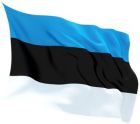 |
From 2013/14, a new study grant system is implemented. The new system is need-based. Grants vary from EUR 75 to 220 per month and depend mostly on students and/or his/her family income. Grants are available to approximately 17 % of all students in the 1st and 2nd cycle together. The basic grant is EUR 55.93/month and the additional grant EUR 28.13/month. These grants are currently primarily based on merit. Students can receive grants for 10 months per academic year. | Full-time students can apply for state guaranteed loans. Estonian citizens or persons with a permanent residence permit, with full-time studies, according to curricula, of nine months or more has the right to obtain a study loan. Some exemptions are envisaged by the law. The maximum amount is EUR 1 920/academic year. |
Finland 2013/14 - grants and loans | Study grant (SG), for which a certain number of credits is required, is available for the regular length of study and
depends on age and whether the student lives with parent(s). Amounts range from EUR 55 to 298/month.
A housing supplement (HS) covers 80 % of the rent for students living independently. The maximum amount is EUR 201.60/month. SG and HS are available only if the student's income is below EUR 11 850/year. This is not an absolute maximum but refers to a typical situation where the student receives aid for nine months: For each month during which you receive study grant or housing supplement, the exempt amount is on average EUR 660, and for each aid-free month EUR 1 970. Assuming that you received aid for 9 months, you would be allowed to have up to EUR 11 850 a year in other income. The income may be earned at any time during the calendar year. SG and HS can be taken 12 months a year, but typically they are taken 9 months. Hence, a common amount is EUR 7 196 (of which EUR 2 700 is a student loan, which is used only by 40 % of students in higher education). | Study loans of EUR 300/month are government guaranteed. Higher education students admitted from August 2005 who graduate in the normative time are entitled to tax deduction for study loans. |
France 2013/14 - grants and loans |
Grants are awarded on the basis of financial need to students that are less than 28 years of age. The amount awarded for the need-based grant depends on the assessment of social criteria. Students are classified into categories based on the family income; within the framework of a reform of the grants (2013), a new category has been created for lower middle-class students, and a new one for the most deprived students. All grant holders get tuition for free and social security contribution waivers (EUR 211). In 2013/14 the amount of the annual grant varies from EUR 0 (for lower middle-class students who only get the waivers) to EUR 5 500. In addition, students having a need-based grant can get a complementary merit-based grant (based on school performance from the baccalauréat results) which amounts to EUR 1 800. | Loans are also available. In 2008, the Ministry of Higher Education and Research started a new policy to get loans easier for all students aged less than 28. It provides loans with a maximum amount of EUR 15 000, guaranteed by a special fund 'OSEO'. Less than 0.1 % of university students take out such a loan. |
Germany 2013/14 - grants and loans |
General public student support (BAföG) is awarded as a grant for one half of the individual amount, and as an interest free loan for the other half. Total amounts range from EUR 10 to EUR 670/month for 12 months/year. Eligibility and amount are determined by assessment of student need based on income, family situation, housing situation and disability. A maximum of EUR 10 000 needs to be paid back. Students need to be under the age of 30 (35 for master studies) to be eligible for public student support. Different types of merit-based support are awarded entirely as a grant. The amount awarded is often determined through an evaluation of student need. Total amounts of scholarships range from EUR 150 to EUR 820/month for 12 months/year. Additional support is determined by assessment of the family financial situation. | Study loans are available to cover the tuition fees (in those Länder that charge tuition fees and limited to the amount charged) and living costs. The latter are available as a Bildungskredit of up to EUR 7 200 and a Studienkredit of up to EUR 54 600. Both loans are paid out in monthly instalments. |
Hungary 2013/14 - grants and loans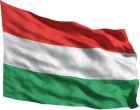 |
The regular need-based grant is paid for a period of 10 months/year. The minimum of the grant specified by the law for the disadvantaged, for students with one living parent and those under legal guardianship until the age of 18 is HUF 119 000/academic year. The minimum of the grant specified by the law for the disabled, multiple disadvantaged, orphans, students supporting dependents or those from a large family is HUF 238 000/academic year. In addition to the regular (monthly) need-based grant (shown in the diagram above), there is a scholarship scheme jointly financed by municipalities and higher education institutions (Bursa Hungarica scholarship). One-off initial and emergency grants are also available. Only state-funded students can receive a merit-based grant. In order to receive a merit-based grant, students have to obtain a certain number of credits or a minimum mark stipulated by the HEI. The grants are paid for a period of 10 months/year. A maximum of 50 % of students at state-funded places are awarded a merit-based grant. The minimum of the grant specified in the law is HUF 59 500/academic year. The diagram does not contain data on the 'Scholarship of the Hungarian Republic', which is granted only to the best performing students (maximum 0.8 % of state-funded students) and is a significantly higher amount. |
A government-subsidised loan (Student Loan 1) is available for both state-funded and fee-paying students (max. HUF 50 000/month for a period of 10 months/year). Orphans and those with unemployed parents can receive HUF 10 000/month more. The maximum duration is 5 years (7 for longer diploma courses such as medicine). Students below 35 years of age are eligible. It is a general-purpose loan. A second type of student loan (Student Loan 2) has been available for fee-paying students since the academic year 2012/13. It is a government subsidised loan with interest rates lower than for Student Loan 1 (above). It can only be spent on tuition fees and it can cover the whole of the tuition fee. Fee paying students can take out both types of loans to cover both study costs and living costs. |
Iceland 2013/14 - grants and loans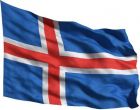 | In principle, no public grants/scholarships are available. However, some merit-based grants are provided by universities and by the Icelandic Research Fund for Graduate Students for the 2nd cycle students. | Loans are provided to full-time students by the Icelandic Student Loan Fund. The amount depends on the size of student's family and personal circumstances including income. The basic individual support for academic year 2012/13 was ISK 140 600/month. Around 50 % of students take out a student loan. |
Ireland 2013/14 - grants and loans |
Need-based grants are provided by the Department of Education & Skills. Their amounts range from EUR 305 to
5 915 per academic year, depending on means, family size and distance from institutions. Students who qualify for
grants also have the student contribution and any tuition fees paid on their behalf.
The same department provides bursaries with a value of EUR 2 000 per academic year. The bursaries require qualification under both merit- and need-based criteria. Students need to satisfy specific conditions of residence, means, nationality and previous academic attainment to be eligible for grants. Students have to be enrolled full-time. | No loans or family allowances, except where a parent in receipt of a social welfare payment is supporting a dependent aged up to 22 who is in full-time education. |
Italy 2013/14 - grants and loans | Public grants are allocated on the basis of both economic need and academic merit. The amount depends on whether the student lives with her/his parents and is defined, within the range mentioned in the diagram above, by the Regional authorities. For instance, the amounts for need-based grants range from EUR 1 904 (students living with parents) to EUR 5 052/year (students not living with parents). | No loans or family allowances. |
Latvia 2013/14 - grants and loans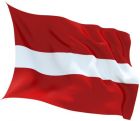 | Public grants to cover tuition fees are allocated on the basis of academic merit. These grants are primarily available in priority areas;
currently natural sciences, computer sciences and engineering.
Other public grants are traditionally available based on academic merit. Recently, more need-based criteria are taken into account. Disabled or orphaned students with families, from large families or in economic need are treated favourably. State budget grants are LVL 70/month (per 10 months) for the first and second cycle. Approximately 4 000 students receive state budget grants each semester (11.5 % of students studying in the state subsidized study places) (2012/13). Higher grants are available through the European Social Fund activities supporting the implementation of Master’s study programmes (specifically for students in the following priority study fields: natural science, mathematics, IT, engineering, health care, environmental sciences and creative industries). In 2012/13, 40.8 % of full time Master students in these priority study fields received this grant. | Two types of loans exist. The first is to cover tuition costs and the second to cover living costs with a cap of LVL 120/month. Loans need to be paid back 12 months after the end of the degree programme. 11 % of students take out loans (2012/13). |
Liechtenstein 2013/14 - grants and loans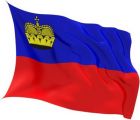 | Public support consists of a variable combination of grants and loans. The maximum total amount is
CHF 25 000, of which 40-60 % are a grant and the rest is a loan. From age 32 on, the state financial support
consists of interest free loans only.
Public grants are available for students, depending on their income (principle of subsidiarity). They need to have the Liechtenstein citizenship or reside in Liechtenstein to be eligible. The amount is calculated on the basis of admissible costs and the reasonable own support. Up to the age of 25 and if students have not been working fulltime for at least 2 years, parents are included in the eligibility and calculation process. State scholarships and grants are fully portable to promote mobility. There are no financial support systems for incoming students. | Public support consists of a variable combination of grants and loans. The maximum total amount is
CHF 25 000, of which 40-60 % are a grant and the rest is a loan. From age 32 on, the state financial support
consists of interest free loans only.
Public grants are available for students, depending on their income (principle of subsidiarity). They need to have the Liechtenstein citizenship or reside in Liechtenstein to be eligible. The amount is calculated on the basis of admissible costs and the reasonable own support. Up to the age of 25 and if students have not been working fulltime for at least 2 years, parents are included in the eligibility and calculation process. State scholarships and grants are fully portable to promote mobility. There are no financial support systems for incoming students. |
Lithuania 2013/14 - grants and loans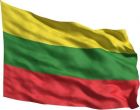 | There are three main types of scholarships/grants: for academic achievement, social scholarships and study
scholarship.
The amount of the scholarships for academic achievement is regulated by each higher education institution. It ranges from LTL 20 to 1 040 per month. The total period of receiving the scholarship depends on HEIs and varies from 10 to 12 months. The amount of study scholarship is the same as fees (vary depending on the study programme, study forms). Social scholarships are available for students with low socio-economical background, disabled students and orphans. Their amount is LTL 390 per month. Students can apply for this scholarship twice a year. If a student meets requirements two times, s/he gets the scholarship for 12 months. Students of the first cycle or integrated studies not funded by the State who have finished with the best results the first two academic years (in case of part-time studies – half of a study programme) and afterwards the remaining academic years, shall be reimbursed for the tuition fee paid for the studies during a respective period (a part of the fee which does not exceed the normative cost of studies). Around 2 500 students received this type of support. | In 2012, less than 5 % of students took out a student loan (1.68 % students received a state-supported loan for living expenses (LTL 100-6 500) and 2.55 % for tuition fees (LTL 750-22 675); the latter cannot be higher than the tuition fee for one academic year. 0.02 % of students received a state-supported loan to pay for part of the studies pursuant to international (interdepartmental) agreements. It ranges from LTL 2 350 to 7 800. 0.02 % students received a state loan to pay for tuition fees – LTL 520. Only students who were enrolled until 2009 can get the state loan |
Malta 2013/14 - grants and loans |
Student maintenance grants are provided to all Maltese students following a full-time first-cycle degree course.
EU students who fulfil the relevant eligibility criteria also receive this maintenance grant. These eligibility criteria are
neither need- nor merit-based but refer to regulations having to do with citizenship, years of residence in Malta,
completion of compulsory education, age, regularity of attendance and progress being made in studies. Students receive
a one-time grant of EUR 465.87, EUR 83.86 every four weeks between October and June and an annual grant of
EUR 465.87. Students studying for a Science, Mathematics or IT-related courses (known as ‘prescribed programmes’),
receive a one-time grant of EUR 698.81, EUR 146.75 every four weeks and an annual grant of EUR 698.81.
Students who, due to proven hardship are deemed to qualify for a supplementary maintenance grant, receive a higher grant than that referred to above. They receive a one-time grant of EUR 582.34, a grant of EUR 251.57 every four weeks from October to June and an annual grant of EUR 582.34. Grants are offered in some second-cycle degree courses which are required for the practice of a regulated profession. Several scholarship schemes are available to students who wish to take up undergraduate studies abroad or postgraduate studies in Malta or abroad. These schemes are issued regularly and include the Malta Government Scholarships Scheme (MGSS – Undergraduate and Postgraduate studies in all areas), the Malta Arts Scholarship (MAS) scheme and the Malta Sports Scholarships (MSS). The ‘Youth Specialisation Studies Scheme’ (YSSS) provides the opportunity for young Maltese people, aged between 18 and 30 years, to apply for a soft loan at a subsidised rate of interest to further their studies abroad or follow distance learning courses, provided that such courses are not available in Malta. | - |
Montenegro 2013/14 - grants and loans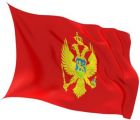 | Ministry of Education, in accordance with prescribed criteria, allocates loans and scholarship for talented students
every year.
Scholarships/grants are given to 'talented students', that are students with highest marks and special affinity towards scientific/artistic work, and who were rewarded prizes at state and international competitions. Grants and loans can be received by students 10 months per year. | Average loan is EUR 42/month, while scholarship for talented students is EUR 86/month.
Grants and loans can be received by students 10 months per year. |
Norway 2013/14 - grants and loans | Norwegian students are entitled to loans and grants from the State Educational Loan Fund (NSELF). The basic
support is at most NOK 94 400 per academic year (10 months). The basic support is initially given as a loan,
however, 40 % of the loan may be converted to a grant for students who live away from their parents and pass all
exams. The grant will be reduced if student's income or assets exceed certain limits. The amounts are universal for
all students who are eligible for financial support. The maximum amount of grant is NOK 37 760.
Students under 25 years of age may also receive a grant for travel costs. Financial support is also given for study abroad as there is full portability of NSELF loans and grants. Exchange students and full degree students qualify for support. Students taking care of children may receive a grant for each child under the age of 16. Students on parental leave can be given a grant for up to 44 weeks, and students who cannot study because of illness may have the loan converted into a grant for up to four months and two weeks a term. Physically disabled students can get an extra grant if they are unable to work during their studies, and they may also receive basic support for twelve months per year. | Norwegian students are entitled to loans and grants from the State Educational Loan Fund (NSELF). The basic
support is at most NOK 94 400 per academic year (10 months). The basic support is initially given as a loan,
however, 40 % of the loan may be converted to a grant for students who live away from their parents and pass all
exams. The grant will be reduced if student's income or assets exceed certain limits. The amounts are universal for
all students who are eligible for financial support. The maximum amount of grant is NOK 37 760.
Students under 25 years of age may also receive a grant for travel costs. Financial support is also given for study abroad as there is full portability of NSELF loans and grants. Exchange students and full degree students qualify for support. Students taking care of children may receive a grant for each child under the age of 16. Students on parental leave can be given a grant for up to 44 weeks, and students who cannot study because of illness may have the loan converted into a grant for up to four months and two weeks a term. Physically disabled students can get an extra grant if they are unable to work during their studies, and they may also receive basic support for twelve months per year. |
Nothern Ireland 2013/14 - grants and loans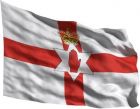 |
1st cycle full-time – the support package includes a need based grant for living costs. The maximum is GBP 3 475 (for students with a
household income of GBP 19 203 or less). In 2011/2, 39 % of applicants were awarded a full grant and 23 % were awarded a partial grant.
Students who are lone parents or who have certain disabilities may be eligible for a special support grant.
1st cycle full-time – the support package includes a loan for living costs for all students. The maximum loan is GBP 3 750 for students living in the family home and GBP 4 840 for students living away. The amount is reduced for students who receive a need based grant. Repayment as for tuition fee loans. 1st cycle full-time – all institutions must offer an additional bursary to students who receive the maximum grant for living costs or special support grant. The amount varies. 1st cycle part-time – a need-based grant for tuition fees and other costs is available. Loans are not available. 2nd cycle – with the exception of a few specific disciplines, such as teaching, social work and some health professions, the majority of students following taught programmes are self-financing. Where available, a taught masters studentship is for GBP 6 863. There is some support for students on doctoral research programmes (which may incorporate masters level study). The Research Councils set a minimum level for this stipend which for 2013/14 is GBP 13 726 per year. Around 60 % of students on taught programmes and 30 % of research students do not receive any support towards tuition fees or living costs. | Tax benefits for parents and family allowances do not play a role in the student support system. |
Poland 2013/14 - grants and loans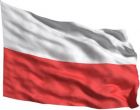 | Financial support is granted to students in the following forms: a needs-based grant available for students with a
low personal/family income, a needs-based grant available for students with disability, emergency grant/ allowance
and merit-based grant for best students. The income threshold to be eligible for need-based grants for students
with low family income is PLN 592.80-850.20 per person per year (from 1 November 2012).
The average amount of the need-based grant is PLN 2 783 (2011). The average amount of the merit-based grant is PLN 1 035 with a maximum of PLN 14 000. | Loans of PLN 6 000/year may be taken out in any cycle for those students whose personal income is below net PLN 2 300/month (in 2012). The state guarantees part of the loans for low income students: students with family income of PLN 600/month per person have been granted a 100 % guarantee of their loan and students with a family income of PLN 1 000/month a 70 % guarantee. |
Portugal 2013/14 - grants and loans | Student grants can be need or merit based.
Eligibility for need-based scholarships is determined by the income of the student and his family. Need-based grants amount vary between EUR 1 065.72 and 5 677.14 (2013/14). Merit-based grants amount is EUR 2 415 (2013/14). | There is a special loan scheme for higher education students at low rates, with government guarantee. In 2011/12, 3.66 % of all students enrolled took out the loan. |
Romania 2013/14 - grants and loans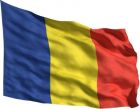 | Merit-based grants take different forms: study bursaries (most commonly RON 250/month) and merit-based
scholarships (most commonly RON 350/month). High achievement scholarships (of which one exists per faculty)
can reach up to RON 600/month. Grants for excellences up to 500 RON/month for performance in the research at
Bachelor level. All grants can be taken 9 months.
Need-based grants, most commonly amounting to RON 300/month, are based on the financial situation of the student. The grant amounts are determined by each higher education institution. They aim to cover the costs of living in student accommodation and of meals. The university establishes the number of grants out of the total fund for higher education expenses. The funds are annually provided by the ministry. | No student loans. |
Scotland 2013/14 - grants and loans | Both grants and loans are available to students depending on circumstances. The ‘Young Student’s Bursary' of up to GBP 1 750 per year is available to students from low income backgrounds. The ‘Independent Students’ Bursary’ of up to GBP 750 per year is available to students over the age of 25 or who are living with a partner. Other grants also exist for students with disabilities. | Many students take out loans. Depending on household income, young students can borrow a maximum of GBP 5 500 per year. Likewise, independent students can borrow a maximum of GBP 6 500 per year. All students can borrow GBP 4 500 per year irrespective of household income. |
Slovakia 2013/14 - grants and loans | There is a legal right for a social scholarship subject to specified conditions. The amount of social scholarship varies from EUR 10 to 270/month. Motivation scholarships are granted by the higher education institutions for excellent results in studies, research and development, artistic or sporting activity. Since January 2013 motivation scholarship has been provided to maximum 50 % of students for excellent study results and to maximum 10 % of students for excellent results in research and development, artistic or sport activity. The amount of motivation scholarship is set by higher education institution or faculty in its 'Decision' together with the reasons for granting scholarships. | Publicly subsidised loans of EUR 1 328/year are available through the Student Loan Fund for full- and part-time students during the regular length of study. |
Slovenia 2013/14 - grants and loans |
'National' scholarships are available for economically and socially disadvantaged students. They are awarded
according to a range of criteria which include both need- and merit-based elements. Merit-based scholarships also
exist. The grants are available for 12 months a year.
Students must be under 26 years old when enrolling for their first degree to be eligible for public support. | No loans. |
Spain 2013/14 - grants and loans |
Although student grants exist at national, regional and local level, only the ones at national level have been
considered here, as they are quantitatively the most important ones. There are many types of grants, aimed at
covering different types of expenses such as transportation, residence, meals, books and materials, etc. The grant
also covers tuition fees. Students can receive different types of grants, depending on their family income. The
average amount of a grant is EUR 2 497.03 and a waiver from tuition fees. The maximum grant is EUR 6 241 and a
waiver from tuition fees, and the minimum is EUR 244 and a waiver from tuition fees.
Grants are need-based, but a minimum level of academic performance is also required. | No loans. |
Sweden 2013/14 - grants and loans | Grants of SEK 707/week (3 063/month) for nine months per year are universally available. The maximum per year is 27 567 SEK. 67 % of students received grants in 2012. | Loans of SEK 1 549/week (6 712/month) nine months per year are universally available.
Students with children can receive an extra grant. It is also possible for some students to receive further supplementary loans and loans for additional costs in connection to their studies. This concerns, for example, students with necessary additional costs for double housing, travel, musical instruments, etc. |
Switzerland 2013/14 - grants and loans | Each canton has its own regulations for the provision of grants and loans to students with residence in
Switzerland (decentralised system). In all cantons, the amount granted depends on the financial situation of the
applicant and his/her family.
In principle, support in the form of grants or loans or a combination of both is provided, but the majority of beneficiaries only receive grants. [2011: 10.4 % grants only, 1.6 % loans only, 1.1 % grants and loans] Some higher education institutions have their own funds for supplementary support of students. Students can only apply if they already have applied for cantonal grants/loans. | Each canton has its own regulations for the provision of grants and loans to students with residence in
Switzerland (decentralised system). In all cantons, the amount granted depends on the financial situation of the
applicant and his/her family.
In principle, support in the form of grants or loans or a combination of both is provided, but the majority of beneficiaries only receive grants. [2011: 10.4 % grants only, 1.6 % loans only, 1.1 % grants and loans] Some higher education institutions have their own funds for supplementary support of students. Students can only apply if they already have applied for cantonal grants/loans. |
Turkey 2013/14 - grants and loans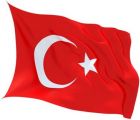 | Grants: University students receive various types of grants during their education. Firstly, scholarship, described in regulations as money given to university students who are in need of financial support in line with the Article 5102 of Higher Education Council amounts to TL 280/month. Secondly, learning credits (öğrenim kredisi), described in regulations as money given to university students to conduct their social and other needs during their education at universities amounts to TL 260/month. Both, scholarship and learning credit are for 12 months. Thirdly, students can receive a 'contribution to education' (katkı payı) from the university. It means that students pay lower fees (TL 200). The exact amount of reduction depends on study programme. | Loans: In 2013, students in the 1st cycle receive TL 280, while students in the 2nd cycle are provided with TL 560 per month. Students who receive this amount of money have to pay back upon their graduation in instalments. |
Wales 2013/14 - grants and loans |
1st cycle full-time – the support package includes a need based grant for living costs. The maximum is GBP 5 161 (for students with a
household income of GBP 18 370 or less). In 2012/13, 38 % of applicants were awarded a full grant and 30 % were awarded a partial grant.
Students who are lone parents or who have certain disabilities may be eligible for a special support grant.
1st cycle full-time – the support package includes a loan for living costs for all students. The maximum loan for students living in the family home is GBP 5 150 and GBP 3 987 for students living away. The amount is reduced for students who receive a need based grant. Repayments as for tuition fee loans. 1st cycle full-time – students who receive the maximum grant for living costs or special support grant and who study at participating institutions may receive an additional bursary of a minimum of GBP 347. 1st cycle part-time – a need-based grant for tuition fees and other costs is available. Loans are not available. 2nd cycle – with the exception of a few specific disciplines, such as teaching, social work and some health professions, the majority of students following taught programmes are self-financing. There is some support for students on doctoral research programmes (which may incorporate masters level study). The Research Councils set a minimum level for this stipend which for 2013/14 is GBP 13 726 per year. Around 60 % of students on taught programmes and 30 % of research students do not receive any support towards tuition fees or living costs. |
1st cycle full-time – the support package includes a need based grant for living costs. The maximum is GBP 5 161 (for students with a
household income of GBP 18 370 or less). In 2012/13, 38 % of applicants were awarded a full grant and 30 % were awarded a partial grant.
Students who are lone parents or who have certain disabilities may be eligible for a special support grant.
1st cycle full-time – the support package includes a loan for living costs for all students. The maximum loan for students living in the family home is GBP 5 150 and GBP 3 987 for students living away. The amount is reduced for students who receive a need based grant. Repayments as for tuition fee loans. 1st cycle full-time – students who receive the maximum grant for living costs or special support grant and who study at participating institutions may receive an additional bursary of a minimum of GBP 347. 1st cycle part-time – a need-based grant for tuition fees and other costs is available. Loans are not available. 2nd cycle – with the exception of a few specific disciplines, such as teaching, social work and some health professions, the majority of students following taught programmes are self-financing. There is some support for students on doctoral research programmes (which may incorporate masters level study). The Research Councils set a minimum level for this stipend which for 2013/14 is GBP 13 726 per year. Around 60 % of students on taught programmes and 30 % of research students do not receive any support towards tuition fees or living costs. |